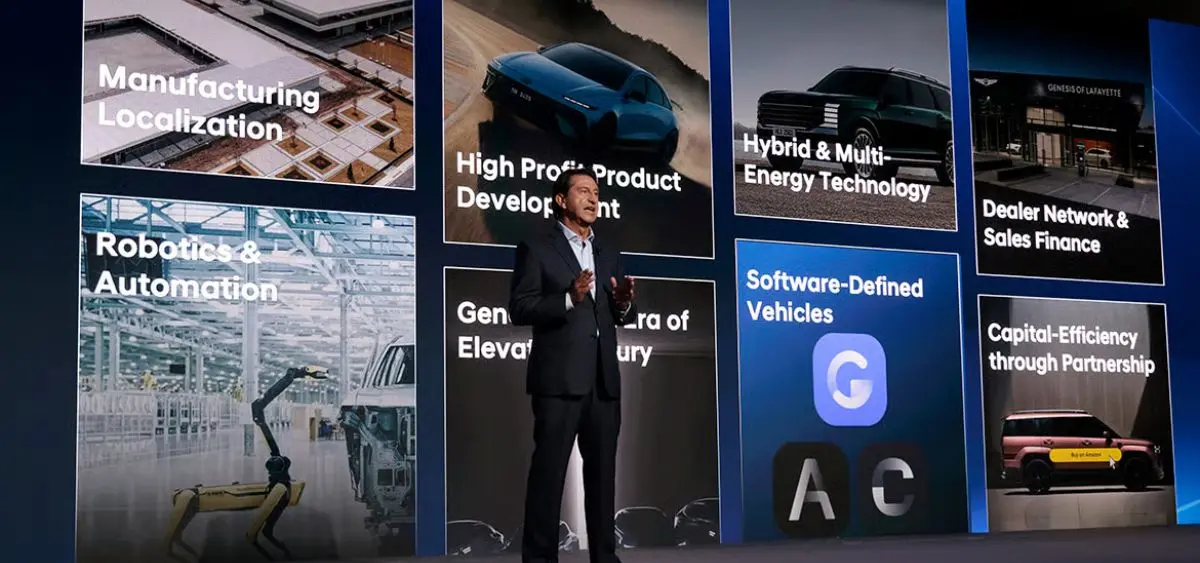The Indian auto market is on the brink of a historic shift as Hyundai launches a locally designed EV in India, making the country a central player in the brand’s global electrification drive. Unveiled at Hyundai’s first CEO Investor Day outside Korea, the bold plan goes far beyond just a new EV. The automaker is also preparing a massive expansion of its Pune plant, transforming it into a global export hub. With India at the heart of Hyundai’s ambitious 2030 roadmap, this move blends innovation, localization, and investment—fueling curiosity about how Hyundai will shape the nation’s mobility future.
India’s First Locally Designed EV
Hyundai has announced that it will introduce a region-specific EV designed exclusively for Indian customers. This vehicle will be developed with a focus on affordability, convenience, and a localized supply chain, addressing the unique needs of Indian drivers and competing directly with domestic leaders such as Tata Motors.
The locally designed EV will be part of a broader lineup, with six new EV models planned for India by 2030, including the Creta EV (2025), Venue EV, Alcazar EV, and an entry-level Exter EV. By combining design innovation with local production, Hyundai aims to achieve a larger EV share than its current internal combustion engine (ICE) market position, where it ranks as India’s second-largest carmaker.
Pune Plant Expansion: A Global Export Hub
Hyundai’s India roadmap is backed by significant manufacturing expansion. The company’s recently acquired Talegaon facility near Pune—formerly owned by General Motors—will serve as a multi-model export hub. Operations are scheduled to begin in 2025, with the plant expected to contribute 250,000 additional units annually by 2030, raising Hyundai’s total Indian production capacity to over one million units per year.
Localization will be a key driver of this expansion. Hyundai is partnering with Exide Industries and Amara Raja to localize battery packs and other key EV components, while its affiliate Mobis has set up EV battery assembly at the Chennai facility. This will help reduce import dependence and strengthen India’s position as both a domestic stronghold and a competitive export base.
Hyundai’s Global 2030 Strategy
India’s EV roadmap aligns with Hyundai’s global target of 5.55 million annual sales by 2030, of which 3.3 million will be electrified vehicles. The strategy includes over 18 hybrid models, extended-range EVs (EREVs) with 600-mile driving range from 2027, and an expanded IONIQ lineup tailored to regional markets like Europe, China, and India.
Beyond products, Hyundai is investing heavily in next-generation battery technologies, including cloud-based battery management from 2026, aiming for a 30% reduction in battery costs and 15% shorter charging times by 2027. The rollout of Software-Defined Vehicles (SDVs) through its in-house Pleos operating system will enable personalized features, continuous updates, and AI-driven mobility services.
A Commitment Backed by Investment
Hyundai has pledged KRW 77.3 trillion (approx. ₹32,000 crore) globally through 2030, with a major portion directed at R&D, EV development, and localized manufacturing. For India, the automaker has also committed to expanding EV charging infrastructure, targeting 485 stations by 2030 to support mass adoption.
Conclusion
With the launch of its first locally designed EV in India (Hyundai launches a locally designed EV in India) and the expansion of its Pune plant into a global export hub, Hyundai is making a strong statement of intent. By combining affordability, localization, and cutting-edge global technologies, Hyundai is positioning itself as a key player in India’s transition to sustainable mobility—while reinforcing its global ambition of becoming a leader in electrification and next-generation mobility solutions.
Related Articles:-

